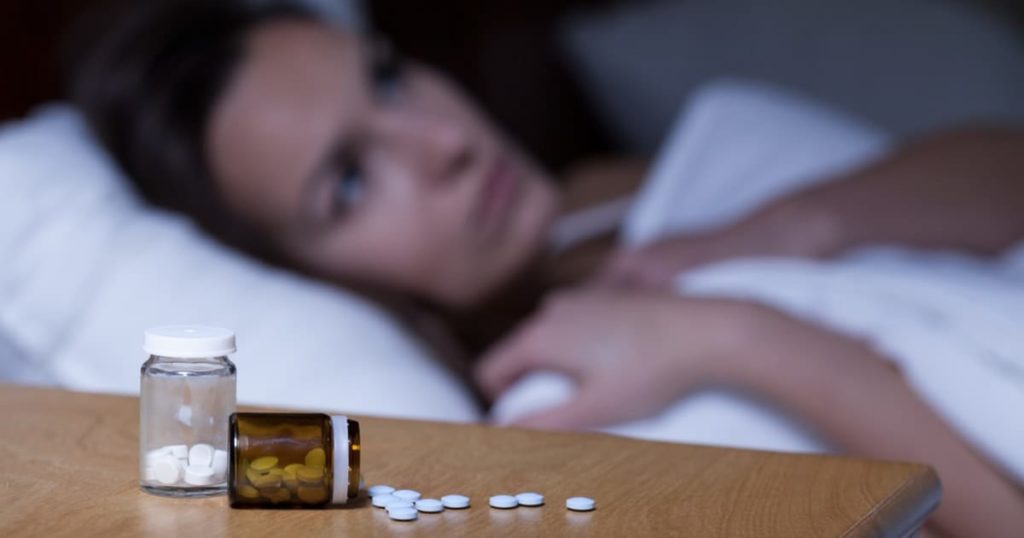Sleep medications are prescription and nonprescription treatments designed to help you fall asleep and/or stay asleep for longer periods of time. Most of the common prescription options have the potential to produce dependence/addiction if you take them in large amounts or for extended periods of time. Depending on your situation, you may want to avoid these medications in favor of a non-addictive prescription or over-the-counter alternative.
Addictive Prescription Medications
There are two major categories of prescription sleeping medications: benzodiazepine sedative/tranquilizers and a group of substances commonly called “Z-drugs.” The benzodiazepine family includes well-known medications such as:
- Diazepam (Valium)
- Lorazepam (Ativan)
- Alprazolam (Xanax)
These substances produce sleepiness by slowing the rate of activity in your central nervous system. Z-drugs get their name because they often begin with the letter Z. The best-known of these medications is zolpidem (Ambien). Other popular examples include:
- Zaleplon (Sonata)
- Eszopiclone (Lunesta)
Scientists classify Z-drugs as nonbenzodiazepine hypnotics. Both benzodiazepines and Z-drugs can produce problems with dependence/addiction if you take them for more than a short period of time (several weeks or so), or use them in excessive amounts. Unfortunately, many people take these sleeping medications for longer periods of time, or even on an ongoing basis. This means that diagnosable issues are not uncommon.
Non-Addictive Prescription Alternatives
Not all prescription sleep aids will produce problems with dependence or addiction. Two medications in particular that do not trigger such problems are ramelteon (Rozerem) and doxepin (Silenor). Ramelteon works by mimicking the effects of melatonin, a sleep-promoting hormone found naturally in your brain. Doxepin is a tricyclic antidepressant that can also aid in sleep promotion.
Nonprescription Alternatives
You can find several alternatives to addictive prescription sleep medications in your local pharmacy or grocery store. Some of these nonprescription substances are antihistamines that have an additional sedative effect. Examples in this category include:
- Doxylamine succinate (the active ingredient in Unisom Sleep Tabs), and
- Diphenhydramine (the active ingredient in Unisom SleepGels and Benadryl)
Another option is a supplemental form of your brain’s natural melatonin. Some people also use the herb valerian, although evidence only partially supports its sleep promotion benefits. While nonprescription sleep aids won’t produce problems with dependence or addiction, they do come with their own specific risks for side effects. Ask your doctor for advice before taking any kind of prescription or over-the-counter medication. Sources: PubMed Health – Institute for Quality and Efficiency in Healthcare: Using Medication – What Can Help When Trying to Stop Taking Sleeping Pills and Sedatives? Mayo Clinic: Prescription Sleeping Pills – What’s Right for You? Drug Enforcement Administration: Benzodiazepines U.S. National Library of Medicine – MedlinePlus: Ramelteon Mayo Clinic: Doxepin (Oral Route)

